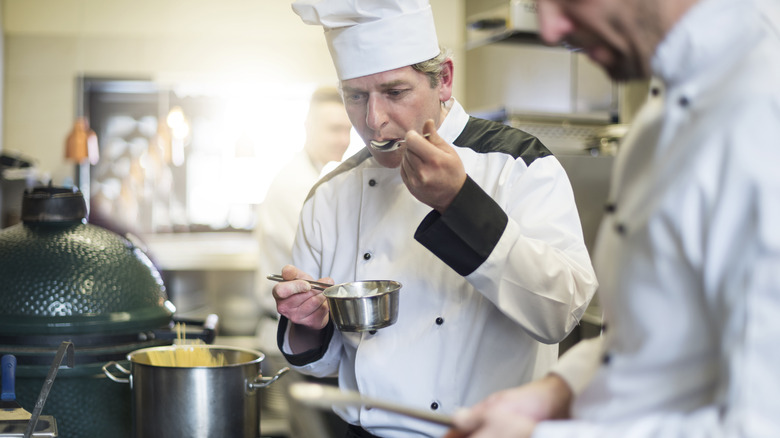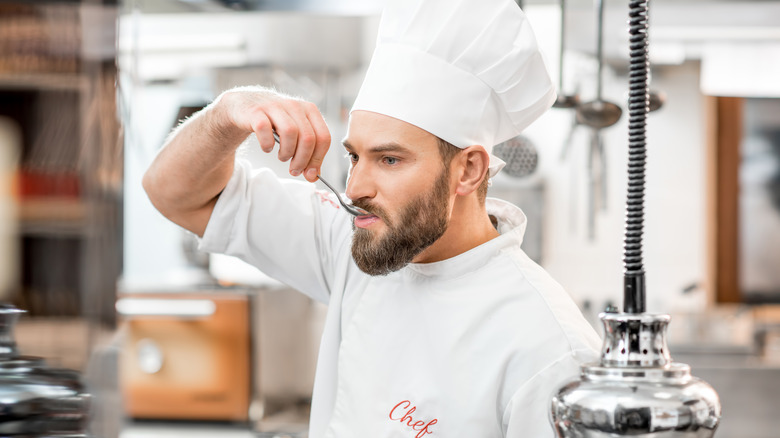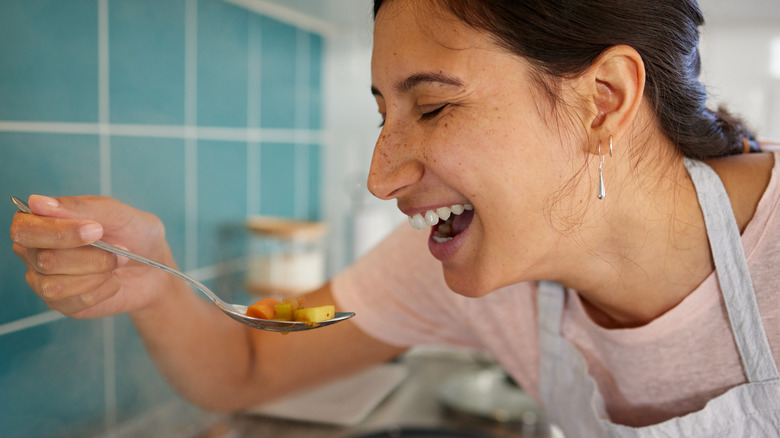The Importance Of The Humble Tasting Spoon In Professional Kitchens
Professional chefs rely on many tools to ensure they produce the best food possible. From stuff you're familiar with — like an oven, a stove, or a mandolin — to something you likely don't have at home — like a salamander or a blast chiller — there are plenty of appliances chefs need. But one of the most crucial weapons in their culinary arsenal is something so simple you might not even think about it: The tasting spoon.
All those other tools may enable chefs to make their food, but a tasting spoon ensures they'll actually be able to make it well. Ultimately, this comes down to one of the foundational cooking principles, either at home or in a professional kitchen: Always taste your food (even though reality TV gets it wrong by not showing this). No, taste your food more than that. You won't know whether it's good if you don't taste it for yourself.
Tasting your food as you cook is extremely important
When given half the chance, professional chefs will drill it into both their employees and the general public: Always season and taste your food at every step of the process to ensure you're getting the product right. Professional kitchens are indeed busy places, but when a sauce is being made, someone — be it the chef who prepares it or the head chef wandering around ensuring quality control — will be tasting it.
To be fair, "tasting spoon" is a bit of a misnomer here, only because you're not likely to see just one tasting spoon. Any chef worth their salt isn't going to lick a spoon and then put it back in their dish a second time because that's clearly a health hazard — same as the classical image of a chef tasting with their finger is extremely undesirable (even if it used to be a lot more common). Instead, chefs will likely have a whole bunch of spoons at their disposal, which they'll run through as needed.
Various implements can be used as tasting spoons
As far as what constitutes a tasting spoon, well, that depends. It could theoretically be a serving spoon; this is most likely what you'd use at home. But typically, professional chefs have other options at their disposal.
Among these are specific smaller tasting spoons because you don't need a full mouthful to taste (although Chef Gray Kunz was famous for using a much bigger spoon in the '90s). But there's also a channel spoon, which lets you lift liquid out of a container and run it down a channel on the spoon handle before it gets to the spoon head (this is so the liquid cools). There's also something called a fork spoon, which is precisely what it sounds like it has a fork on one end and a spoon on the other, so a chef can taste either solids or liquids using one utensil.
But whatever a chef uses, it's a universal truism that tasting is important. All these tools exist with one singular purpose: Ensuring a chef has the greatest possible ability to put out a delicious dish.


